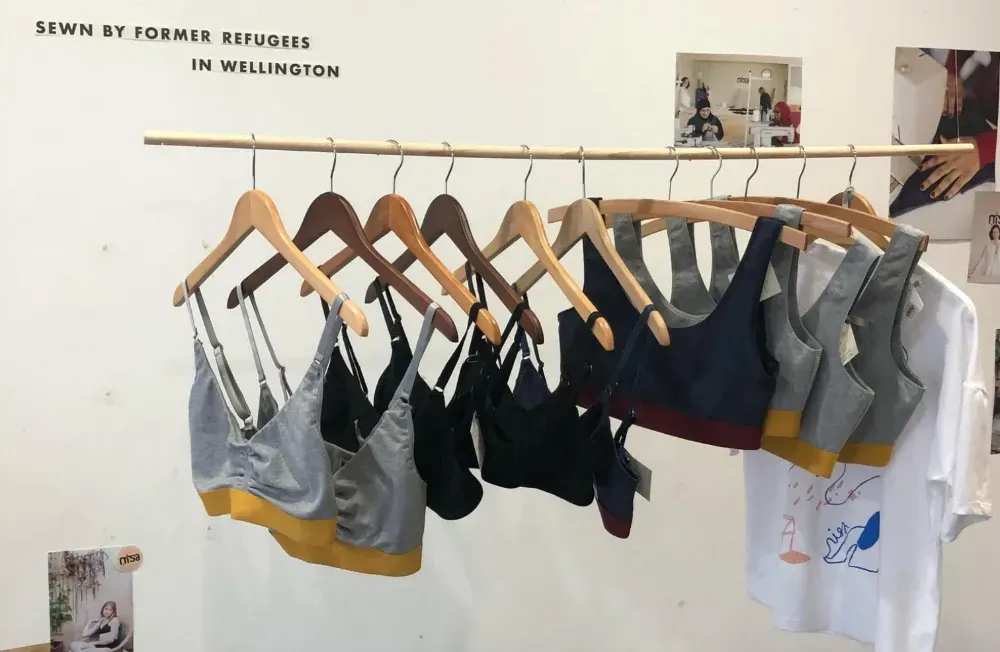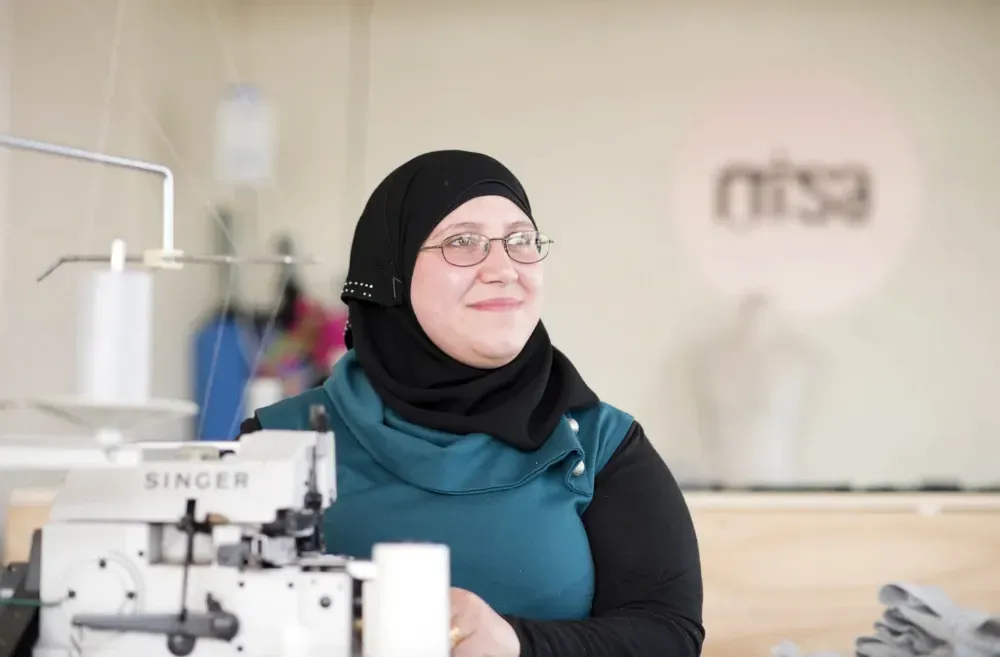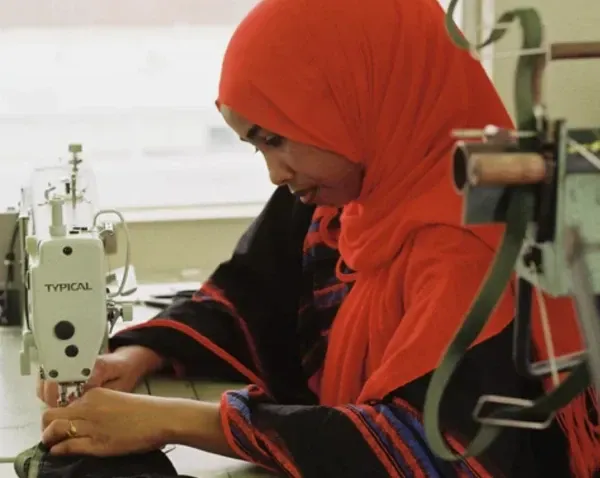Driven by passion and ethics
Written by

Reaching an unprecedented level of global awareness, social and environmental issues are leading consumers to demand more transparency from makers.
So, what does transparency have to do with undies? After hearing the remarkable story of a creative underwear business started by Elisha Watson in Wellington, I set out to learn how she managed to succeed where so many others have simply given up.
An understated staple crosses barriers
One thing clear about Elisha is that she loves a challenge. In 2017, she started Nisa, a small Wellington business with a focus on making ethical products. The idea for the company came to her when she was volunteering with the Red Cross in a resettlement program. She noticed many of the refugee women shared her passion for sewing but were struggling to find jobs in New Zealand due to cultural and language barriers.
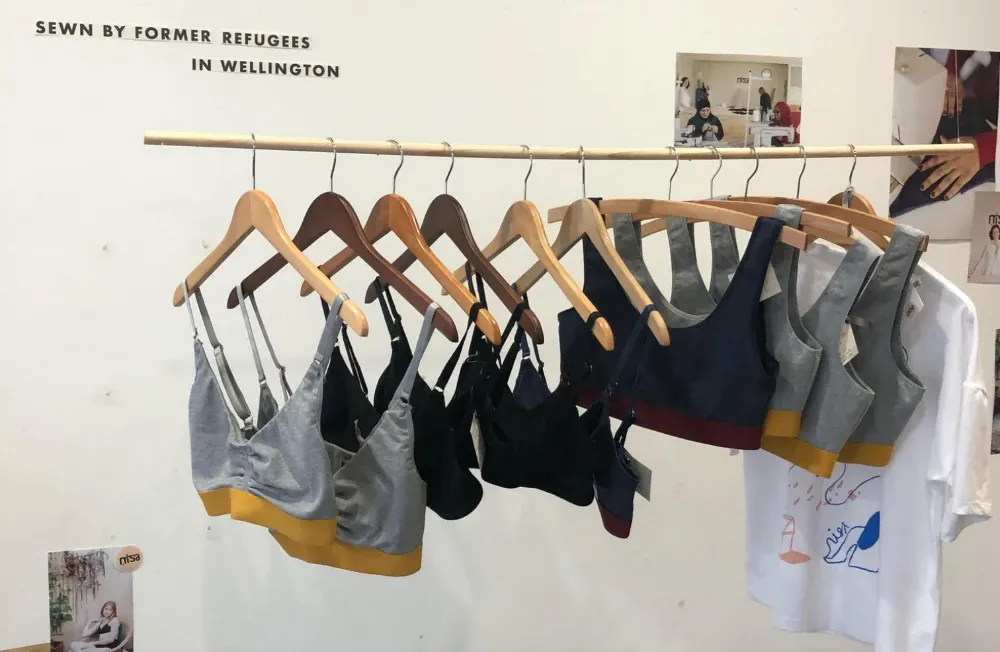
Nisa underwear. Photo supplied.
Elisha saw an opportunity, quit her position as a litigation lawyer, and turned her creative hobby into a business that would also provide refugee women with stable work and a safe space. Next came crowdfunding campaigns and a plethora of lessons as she dived headfirst into her very own social enterprise.
Deeply passionate about welcoming new New Zealanders into Aotearoa, Elisha connects with potential employees by working directly with the Red Cross Pathways to Employment team. Cultivating a warm environment is important to her and the result is a tight-knit workplace of women who enjoy each other’s company and working closely together. “There are lots of laughs, a lot of hilarious misunderstandings, and a bucket load of support,” Elisha says joyfully. The workshop feels a happy place to be.
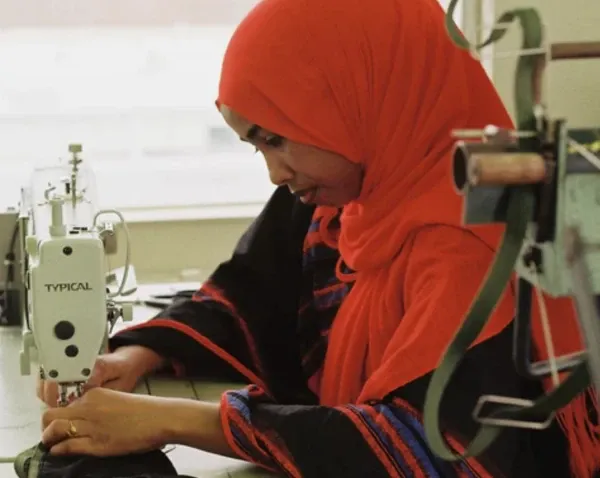
Fowziya at Nisa workshop. Photo via nisa.co.nz
Challenging fast fashion
The model of the business is what Elisha calls ‘Design Inclusivity’. Meaning, Nisa tries to reach the widest possible market while forgoing targeted marketing and sky-high prices. Their products aren’t attached to any particular season, nor are they designed with the latest trends in mind. “We just want to make beautiful and comfortable underwear that blows our customers minds,” Elisha says.
It’s no secret that manufacturing clothing in New Zealand comes at a high price when compared to fast fashion and factories overseas. With this in mind, Nisa goes about the designing of their products differently to most other companies. They think of what they want the finished product to be, perhaps a boy-leg brief or a cheeky brief, and then they decide on the price that they think a customer would be willing to pay for it. “Then we design backwards from that ‘til we end up with the finished product,” Elisha says. This process ensures that they keep their prices fair without sacrificing the quality of their product or their ethical standards, a hard feat in a highly competitive market.
Sharing struggles
While the brand has developed an enthusiastic following since selling its first pair of knickers, Elisha talks openly about the challenges she’s faced and the areas in which the company can grow. She speaks of ethically sourcing materials as the biggest obstacle in the journey to date. It took years to find good suppliers for the elastics and organic cotton, but they still have “ginormous” minimum order quantities, which Nisa initially struggled with as a new small business. And as previous suppliers have closed their doors and the garment manufacturing industry “doesn’t really exist in New Zealand anymore”, they have had to turn to other countries to import its materials. This is a sore point for Elisha who wishes there was more of a local industry to source from and hopes this will change in future.
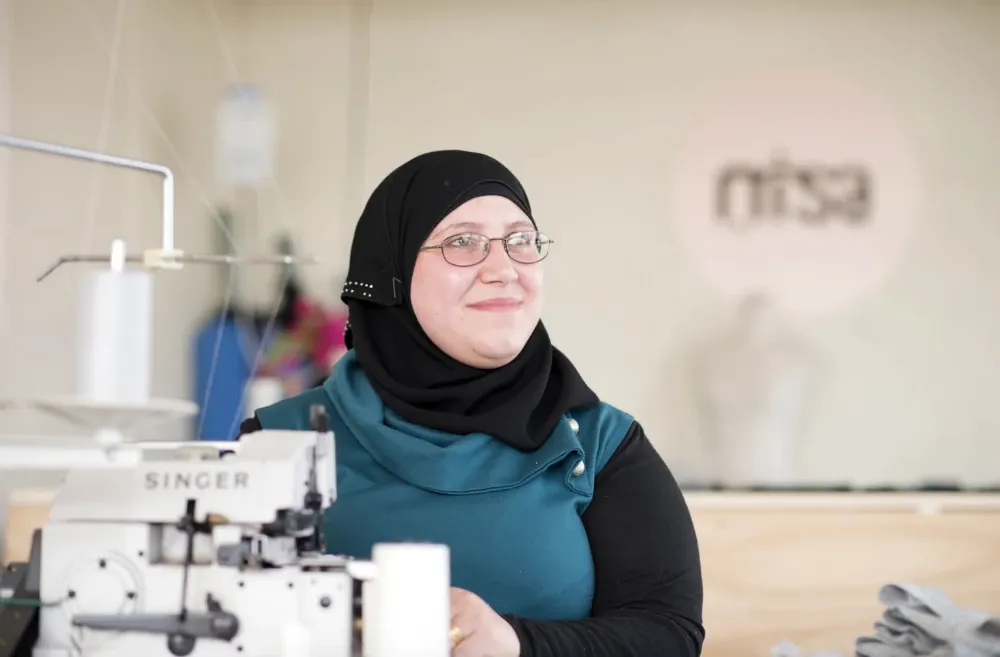
Boshra in Nisa Workshop. Photo via nisa.co.nz
Total transparency and connecting with customers
Transparency is wholeheartedly embraced by the brand. The label does have a few retailers dotted around New Zealand, but its main goal is creating a direct connection with customers, both in-store and online. If you visit the workshop and store, you can see the garments being made behind the counter while you browse. Social media platforms like Instagram allow the team to interact and engage with a far wider audience than foot traffic alone would allow.
Showing the people and processes behind their products is hugely important. On their website, you’ll find detailed workshop updates and the personal stories of every team member. It is this type of personal connection that pulls people in and proves the incredible impact of ethical manufacturing. “We share everything, from when new fabric shipments arrive to when we take on new team members. The joys and also the struggles are broadcast to the world,” Elisha says.
Looking ahead, Elisha says she “can't wait until ethical manufacturing is no longer something to brag about because everybody is doing it.” It seems, as with most things, there is still a long way to go. And everyone, both companies and consumers, has a part to play. Whether that be ensuring your materials are ethically sourced, offering stable work opportunities to those who need them most, or simply doing some more research before you buy your next pair of knickers, there is a beautiful but subtle challenge in how we buy.

Elisha Watson - photo supplied.
Written by Harold Coutts.
This September is New Zealand Arts Month! You can read more and join the kōrero on Artsmonth.co.nz
